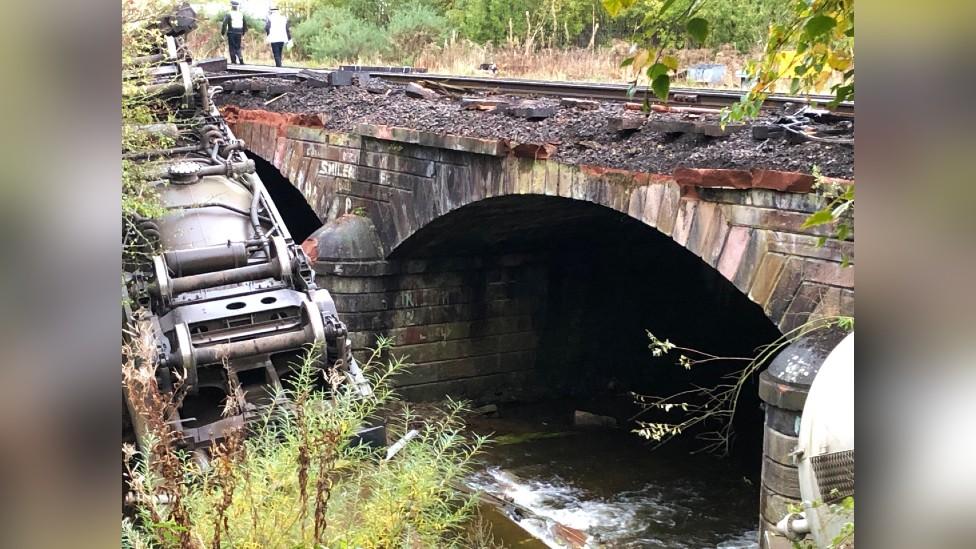Carlisle train derailment: Engineers remove cement wagons blocking line
- Published
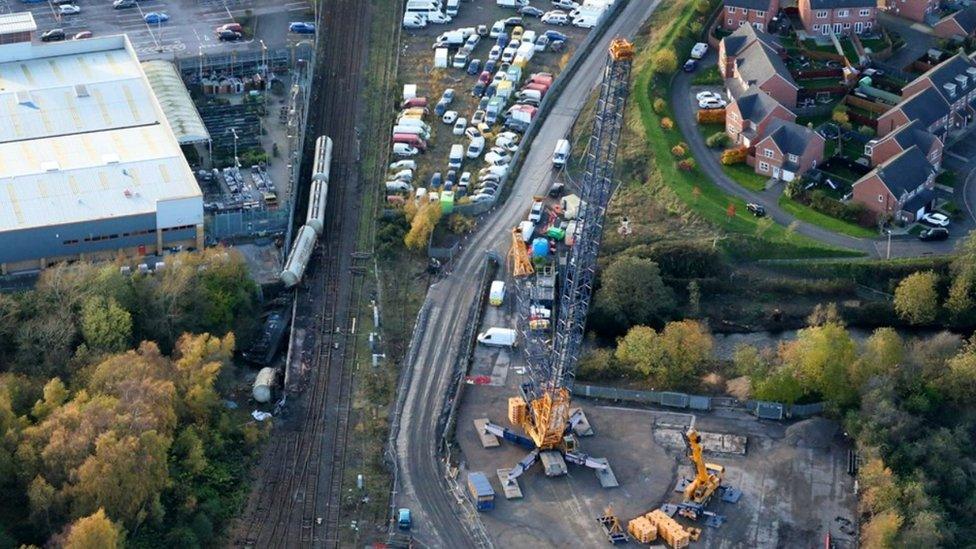
A huge crane has so far removed two of the three stranded cement wagons
Rail engineers have removed two 80-tonne cement wagons after a train carrying cement derailed.
The train came off the tracks at Petteril Bridge Junction in Carlisle on 21 October.
Network Rail said 40 engineers were on site every day working with an 800-tonne crane moving the three stranded wagons.
It is hoped train services will resume on the Tyne Valley and Settle to Carlisle lines by early December.
Work to replace 80 metres of damaged track will begin soon, as well as rebuilding work to the bridge foundations and the parapet.
Mark Evans, Network Rail senior programme manager, said: "I'd like to thank rail passengers and local people for their continued patience while we've been working hard to recover the stricken freight train in Carlisle.
"A great deal of preparation work has gone into the complex lifting of the wagons, with the main crane now towering above the city."
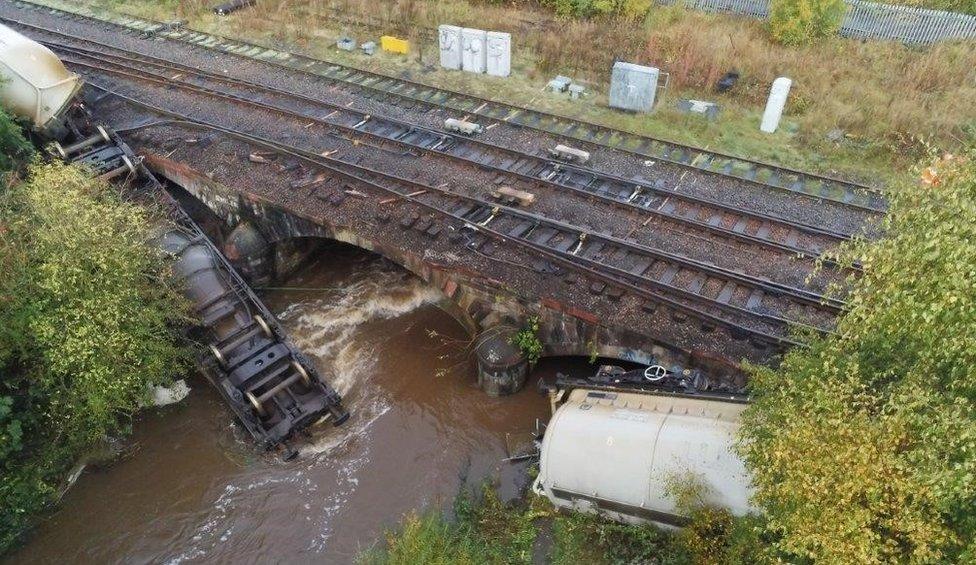
One of the derailed cement wagons entered the river below the bridge
The train consisted of 14 wagons each containing 80 tonnes of powdered cement, and was travelling between Clitheroe and Carlisle.
The crash, which saw one wagon fall into the River Petteril, was "almost certainly" caused by a damaged wheel hitting part of the track, investigators have said.
The Environment Agency is "continuously monitoring that work" and there have been "no spillages into the river" during the recovery process, the spokesman added.
Replacement buses will continue to be in operation and passengers are advised to check the National Rail website, external for information.
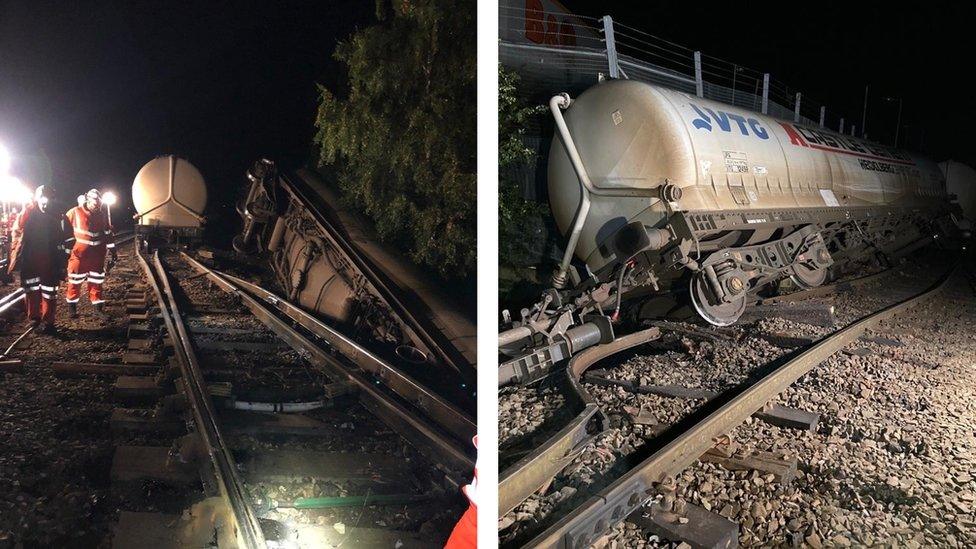
There will need to be "major repairs" after the derailment

Follow BBC North East & Cumbria on Twitter, external, Facebook, external and Instagram, external. Send your story ideas to northeastandcumbria@bbc.co.uk, external.
Related topics
- Published28 October 2022
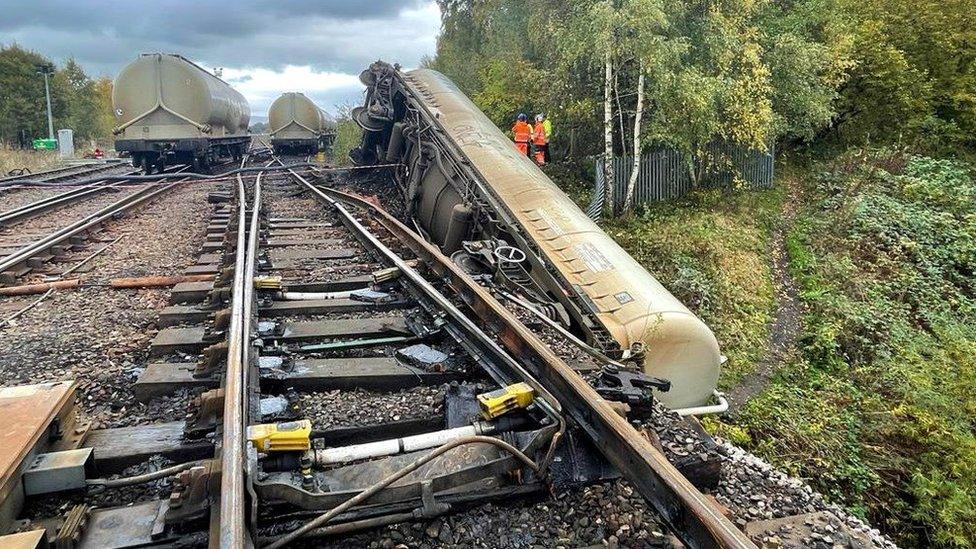
- Published21 October 2022
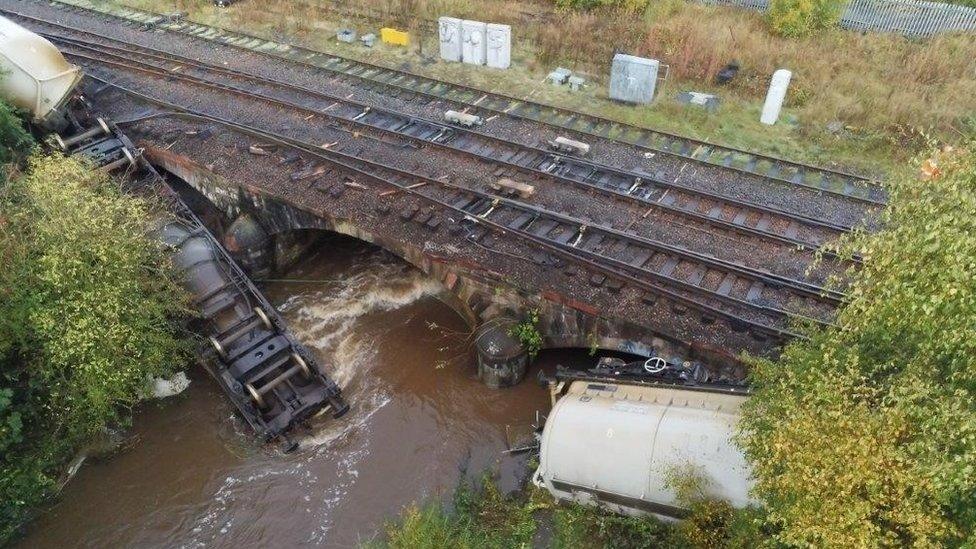
- Published20 October 2022
